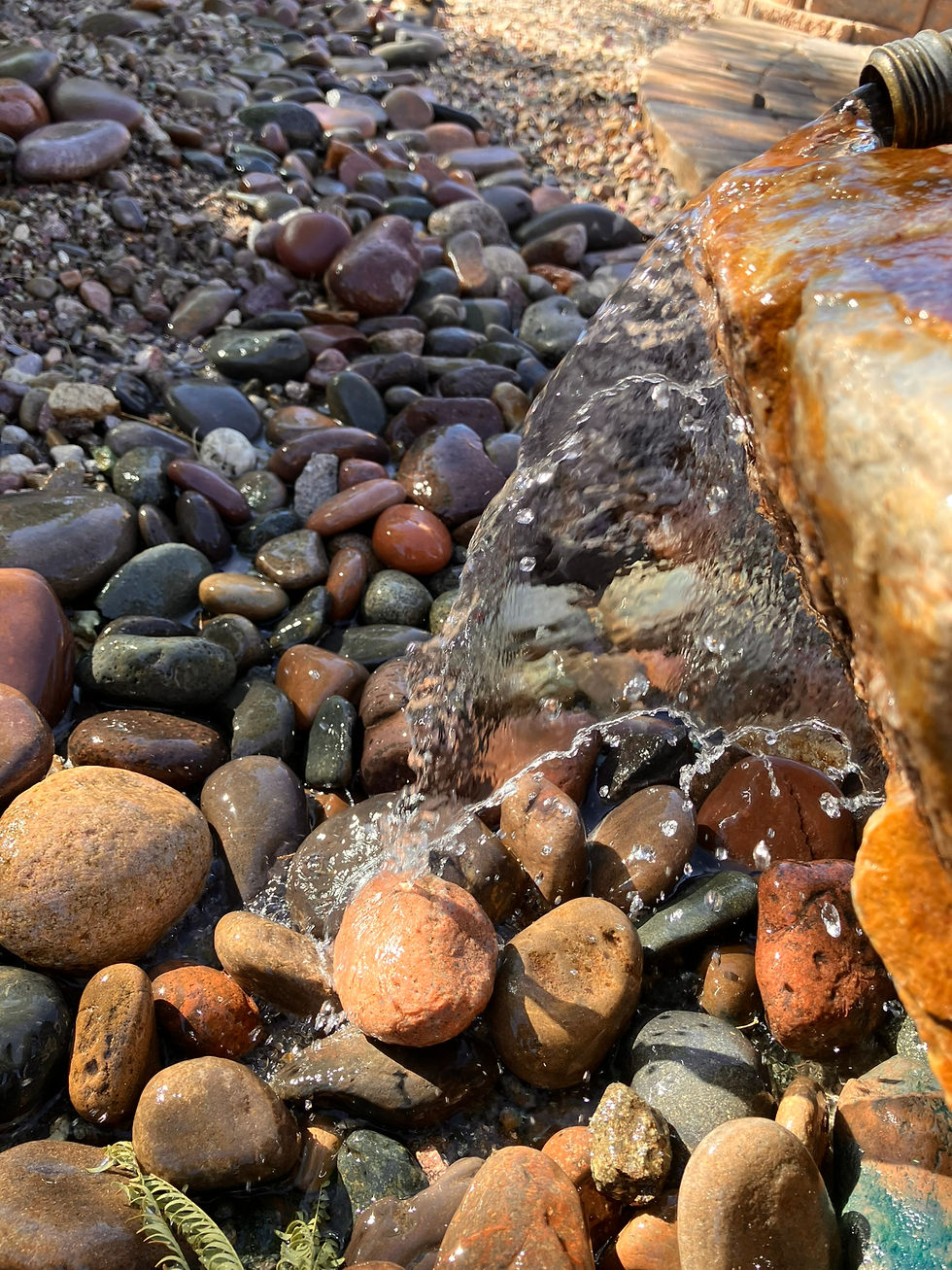- Char Seawell
- Jun 20, 2023
- 4 min read

While living in the verdant Northwest, I often reflected on how my garden design was determined by what the garden wanted itself to be. I would study the exposed massive fir tree root to discern where the white rocks that had traveled in our pockets from the shores of Deception Pass should be placed. Perhaps the moss was better served here. Perhaps the trailing vine desired a hillside view.
Water was ever present, and sun in short supply, so adopting plants and placing them in nooks and crannies that best seemed to “suit their personalities” was an easy task. Nearly every plant label said, “partial shade” and “moderate water needs”.
Not so the desert, where water is scarce and sun is plentiful. It has taken a full year of watching the sun’s travels across the yard and noting the length of shadows through the day before I have dared to start planting.
Because of the harsh desert conditions, I have become a student of planting instructions hoping to give these new garden additions their best chance of success in this often unforgiving landscape. How much water? How much sun? How long before they grow and produce fruit and flowers? When do they need to be pruned?

This morning, as I studied how water trickled over stone so as to determine the direction of the flow and the best place to plant, I wondered if we might not be a kinder, gentler world if we all took time to read each other’s planting instructions. To take the time to learn what would help each of us not just grow, but thrive, especially when it comes to our spiritual lives.
As a victim of not having people read my “spiritual planting instructions” until I was 46 years old, I was led to believe there was an “us” (the saved who walked with God) and a “them” (the “lost” who did not walk with God).
The problem is, it’s incomplete theology.
I say this to the those well intentioned “found” who tried to “save me” in the course of my life but only kept me from embracing my One True Love:
I was never lost.
God knew exactly where I was. And He never left my side, even in my darkest hours. Even when I doubted Him and pushed Him away. He knew my planting instructions because he created them, unique to me. He knew what I needed and gave me time to grow until my heart was ready for more.
To suggest that any of us might not be walking with God seems to defy the nature and character of God. None of us can ever be out of sight of our Creator. None of us can ever free ourselves of his relentless love. Even if we tried to get lost, He would drop everything just to bring us close to His side again.
Before my heart was ready for the full faith story, I experienced our Creator deeply in nature. In creation, I experienced the grandeur, the creative orderliness, and the deep love of the Creator revealed in the song of every brook, the whisper of every breeze, and the haunting notes of every bird of the forest..
But while God was patiently revealing himself to me, the humans around me engaged in “ambush evangelism” on on street corners, in school hallways, and in the every corner of my daily life. And that cacophony was a stumbling block for decades, drowning out the still, small voice of a loving Creator. Only in creation could I hear my maker’s voice above the noise.
Perhaps hearing. “the good news” shouted out of context in our already noisy, complex world does not sound like good news to some of us. Perhaps assuming there is somewhere God is not is the worst of all misassumptions. Perhaps it is “the found” who could benefit from a long fast from words while sitting in the Holy deafening silence of a God soaked world in which the human voice is not needed.

Everyone of us is seeking to be placed in an environment that suits our nature…one where we can grow at our own speed supported lovingly by the careful Gardener who tills the soil to ready our hearts for a more complete story.
It is a transformation that will unfold on a time table set by the Gardener’s hands and one that will not be rushed by the intrusion of human desire, no matter how well intentioned.
In the sacred waiting, His song over my life, was sung in the wind’s whispers through clattering aspen, through every sunrise and every sunset, through the love songs from the mouths of birds wrapping themselves around our hearts singing,
I have summoned you by name; you are mine.
It is a song the Creator sings over all of us, every day, preparing the soil of our hearts like the tender gardener He is. Let His work be done according to His will, and then be released from that burden so as to follow the one instruction common to us all, whether “lost” or “found”.
It is simply this:
To love our Creator.
To love others.
And to love our neighbor at least as much as we love ourselves. Perhaps even more,
In that soil, all of us will flourish, growing ever closer to our own embrace of the Master Gardener as we are called to Everlasting Love.











